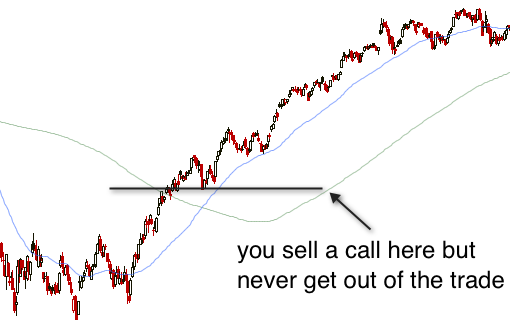Simple and Innovative Strategies for a Sustainable Business
In today’s rapidly evolving market, sustainability isn’t just a buzzword; it’s a business imperative. Companies that prioritize sustainable practices not only contribute positively to the environment but also tend to build stronger relationships with customers and achieve long-term success. Whether you’re running a small startup or a large enterprise, embracing sustainability can be a game-changer. From reducing waste to incorporating the Best crypto debit card options and other cashless payment systems, there are numerous strategies to help your business thrive sustainably.
1. Embrace a circular economy.
The traditional linear economy of “take, make, dispose” is no longer viable in a world where resources are finite. The circular economy model, which focuses on reusing, repairing, refurbishing, and recycling, is a sustainable alternative. By embracing this model, businesses can minimize waste and make better use of resources.
For example, a company can design products with longer lifespans or use materials that can be easily recycled. By doing so, you not only reduce your environmental impact but also create a unique selling point that can attract eco-conscious consumers.
2. Incorporate cashless payments.
Going cashless is another innovative strategy that contributes to sustainability. The reduction of physical money circulation can lead to fewer resources used in producing coins and banknotes, as well as less environmental impact from transporting money.
But it’s not just about convenience; it’s also about offering diverse payment options that align with modern consumers’ preferences. One way to enhance your business’s cashless payment system is by integrating crypto debit cards. These cards allow customers to pay with cryptocurrency, converting it into local currency at the point of sale. By offering the best crypto debit card options, you cater to a growing demographic of crypto-savvy consumers, while also positioning your business as forward-thinking and tech-savvy.
3. Optimize energy use.
Energy efficiency is a cornerstone of sustainable business practices. By optimizing your energy use, you not only reduce costs but also minimize your carbon footprint. Start by conducting an energy audit to identify areas where you can improve efficiency.
Consider switching to LED lighting, investing in energy-efficient appliances, and incorporating renewable energy sources such as solar or wind power. Additionally, implementing smart technology to control lighting, heating, and cooling systems can further enhance energy efficiency, leading to long-term savings and a reduced environmental impact.
4. Implement sustainable supply chain practices.
A sustainable business extends beyond its walls—it encompasses the entire supply chain. Partnering with suppliers who share your commitment to sustainability ensures that the products and materials you use are ethically sourced and environmentally friendly.
Look for suppliers who use sustainable materials, practice fair labor standards, and minimize waste in their operations. By doing so, you not only support ethical practices but also strengthen your brand’s reputation as a responsible and socially conscious business.
5. Go digital to reduce paper waste.
In the digital age, there’s no reason to rely heavily on paper. Transitioning to digital processes can significantly reduce your business’s paper waste, leading to a more sustainable operation.
Adopt electronic invoicing, digital contracts, and cloud storage to minimize the need for printed documents. Encourage employees to use digital note-taking tools and avoid unnecessary printing. Not only does this reduce waste, but it also streamlines operations, making your business more efficient.
6. Foster a green workplace culture.
Sustainability isn’t just about the strategies you implement; it’s also about the culture you cultivate within your organization. Encouraging a green workplace culture can lead to more sustainable practices and a more engaged workforce.
Start by educating employees about the importance of sustainability and how they can contribute. Implement recycling programs, encourage the use of reusable containers, and promote energy-saving habits such as turning off lights and electronics when not in use. By fostering a culture of sustainability, you create a sense of shared responsibility that can lead to lasting change.
8. Invest in sustainable packaging.
Packaging is a significant contributor to environmental waste, but it doesn’t have to be. Investing in sustainable packaging options can reduce your business’s environmental impact while also appealing to eco-conscious consumers.
Consider using materials that are biodegradable, recyclable, or made from recycled content. Additionally, minimize packaging where possible to reduce waste. By choosing sustainable packaging, you not only reduce your carbon footprint but also differentiate your brand as one that cares about the environment.
8. Support remote work.
The shift to remote work has been accelerated by the COVID-19 pandemic, but it’s also a strategy that can contribute to sustainability. By allowing employees to work from home, you reduce the need for office space, energy consumption, and commuting, all of which contribute to a smaller carbon footprint.
To support remote work, invest in digital collaboration tools, provide flexible work schedules, and ensure that employees have the resources they need to work effectively from home. This not only enhances sustainability but also improves employee satisfaction and work-life balance.
The Future is Green
Building a sustainable business is not just about implementing a few green initiatives—it’s about embedding sustainability into every aspect of your operation. From adopting a circular economy to incorporating cashless payment options like the best crypto debit card, there are countless ways to make your business more sustainable. By embracing these strategies, you not only contribute to a healthier planet but also position your business for long-term success in an increasingly eco-conscious market.







